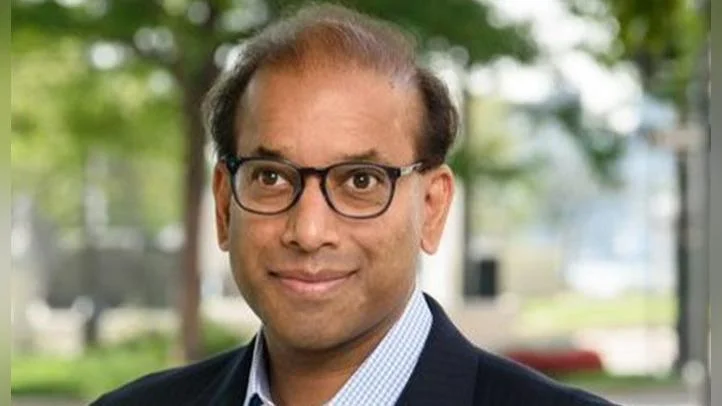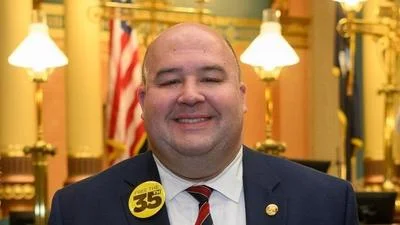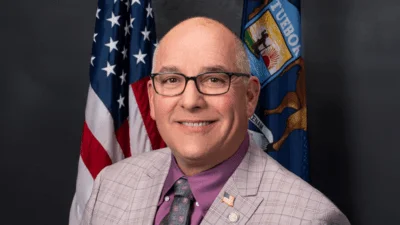Sandy K. Baruah President and Chief Executive Officer at Detroit Regional Chamber | Official website
Sandy K. Baruah President and Chief Executive Officer at Detroit Regional Chamber | Official website
The latest Republican primary debate in Wyoming, covering topics such as energy and public lands, saw only two of the four candidates attending. Incumbent Lloyd Larsen highlighted the absence of his opponents by gesturing at an empty chair and stating, “You’re going to hear what I have to say, but there’s silence here. It’s unfortunate.”
The absent candidates had cited distrust of the local League of Women Voters as their reason for not attending, despite the event being organized in collaboration with both the Fremont County GOP and its Democratic counterpart.
This incident reflects a broader trend where candidates increasingly opt out of debates or forums with their opponents. Gibbs Knotts, a political scientist from Coastal Carolina University, noted that this shift signals an erosion of a ritual central to American democracy. “Our country depends on people of different perspectives talking through the issues and trying to find common ground,” he said.
Former President Donald Trump has also skipped debates, refusing to participate in Republican primary forums and initially pulling out of an ABC debate against Vice President Kamala Harris before reversing his decision.
In San Francisco, a mayoral debate was canceled after all three candidates withdrew due to concerns about the sponsor and moderators. Similarly, the Detroit Regional Chamber called off a U.S. Senate debate when front-runners Elissa Slotkin and Mike Rogers pulled out.
The Detroit chamber criticized this trend in a statement: “Today’s dynamics favor sound bites, clicks, and ‘likes’ and let political strategy take precedence over informing voters by standing ‘in the arena’ debating ideas.”
Research from Brookings Institution shows a steady decline in debates for competitive U.S. Senate races from 2010 to 2022. More candidates are also avoiding forums sponsored by state and local chapters of the League of Women Voters.
Dianna Wynn, president of the League of Women Voters, questioned why some political candidates avoid answering voter questions: “We’ve been hosting these for over 100 years. The league has not changed.”
Strategists argue that skipping debates often benefits incumbents who face little downside risk. Social media provides an alternative means for candidates to communicate directly with voters while avoiding potential gaffes during live debates.
John Thomas, a veteran Republican strategist in Texas, recommends clients skip debates due to small audiences often composed of unpersuadable voters: “You could be doing a Facebook live. You could be raising money. You could be door-knocking.”
Rebeca Clay-Flores declined to appear at events with her Democratic primary runoff opponent in Bexar County, Texas, focusing instead on direct voter engagement throughout her precinct.
Dan Moulthrop spearheaded the Ohio Debate Commission after noticing an increase in candidates declining invitations from City Club of Cleveland. Despite some successes in organizing statewide debates, challenges remain as seen with Republican Gov. Mike DeWine turning down invitations during his 2022 primary campaign.
In central Wyoming's Fremont County Republican Party chair Scott Harnsberger collaborated with the local League of Women Voters for summer forums despite initial doubts about their nonpartisanship.
However, five legislative district candidates refused participation citing distrust in the league’s impartiality despite assurances otherwise.
Rep. Ember Oakley criticized false campaign mailers during her attendance at one forum while highlighting her commitment to discussing issues with all constituents: “There is not one person that I represent that I will not have a discussion with.”
Kristi Green expressed disappointment over missing perspectives at candidate forums she attended: “Every four years I had an interview with people... it was important for me to have my opponents there so we could show our differences.”





 Alerts Sign-up
Alerts Sign-up